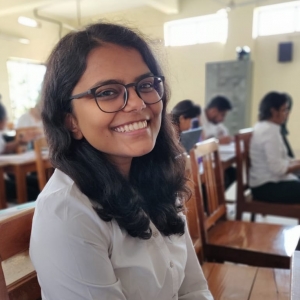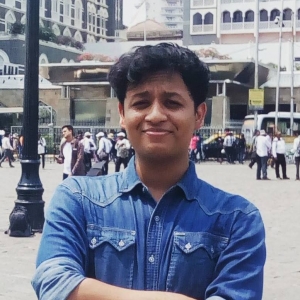by Winy Daigavane and Anubhav Das
The conduct towards the LGBT community in India has not been very progressive even after homosexuality was decriminalized. To add salt to their wounds, a recent incident highlights the atrocities faced by them. A 21-year-old student, Anjana Hareesh, committed suicide. While the exact reason behind her death is unknown, it is alleged that there is a link between her suicide and the fact that she was forced into conversion therapy by her family for months after coming out as bisexual. The reason why such allegations got triggered is that the student in a Facebook video claimed that she was being coercively subjected to conversion therapy in de-addiction and mental health centres run by a Christian-community, and was being put under heavy medication. Moreover, scientific research on these matters says that conversion therapy results in mental health issues, which include suicidal thoughts.
Image credit: Nick Johnson, Wikipedia Commons
This is not a standalone incident, as many from the LGBT community claim to have faced this and that it is still being practised by cosmic healers and doctors alike, highlighting the interplay of religion and science with conversion therapy. Further, violence against the LGBT community does not affect the people equally as the interplay of caste, gender, religion, etc. aids in the determination of how people experience homo-lesbo-bi-transphobia.
This throws light on the dangerous practice of conversion therapy being practiced in India even after homosexuality has been decriminalized. It points out the existence of a mind-set in the Indian society which ascribes homosexuality to be abnormal and hence, curable by medical means. This article will explore the stance of conversion therapy practised by doctors in the current legal system of India. It will examine the need for this practice to be penalized, and further, it will critically analyse such penalization and its impact on Indian society.
The legality of the practice of Conversion Therapy in India
Conversion therapy is a practice to change the sexual orientation of an individual, from homosexuality to heterosexuality. This practice has been denounced by the medical community as unethical because it is done assuming homosexuality as a mental illness, even though there exists no scientific evidence.
The use of such therapy by doctors can attract civil liability – a form of legal liability wherein compensation is to be paid in terms of money for damages done, under medical negligence, as doctors have a duty to decide whether they should or should not take up the case. This was held by the Supreme Court of India in the Laxman Balkrishna Joshi case.
Indian doctors should refuse to take up cases involving conversion therapy. If they fail to do so, then civil liability under medical negligence can be attributed to them. But civil liability only recognises monetary compensation and nothing more. Hence, ascribing civil liability in the instances of doctors unabashedly ignoring medical research is not sufficient to eliminate this practice completely. Therefore, a need for attributing criminal liability arises.
To attribute criminal liability for conversion therapy in India, two possible recourses can be explored.
- Firstly, Section 319 of the Indian Penal Code (IPC) provides that causing infirmity will constitute the offence of “Hurt.” Moreover, it was held in Jashanmal Jhamatmal v. Brahmanand Sarupananda, that infirmity of mind comes under the ambit of “Hurt.” Hence, an inference can be made that the conversion therapy may fall under the ambit of “Hurt,” due to sufficient evidence of mental infirmities like depression, anxiety, trauma, etc. caused by it.
- Secondly, criminal liability for medical negligence is provided under Section 304-A of the IPC. However, the threshold of establishing the same is extremely high. It is a settled position in criminal law that for establishing criminal negligence or recklessness, the act must be of such a high degree as to be “gross,” as held in the Jacob Mathew case. Consequently, due to the ambiguity and wide scope of the terms “high degree” and “gross,” this gives a leeway to the medical practitioners to get away without any penal consequence.
However, judicial precedents do not support the application of the aforesaid provisions to conversion therapy, which gives rise to a need for specific criminal provision/statute addressing the same.
Need for Criminalization
The Supreme Court of India, in 2018, decriminalized homosexuality in the Navtej Singh Johar case. It liberally interpreted the definition of mental illness under Section 2(s) of Mental Health Act, 2017, and relied upon international norms and accepted medical standards to remove homosexuality from the ambit of mental illness. The Court directed the Government to give wide publicity to the judgement to remove the social stigma associated with homosexuality. It also obligated the sensitization of the Government and the police to the atrocities of the LGBT community. But, the institutionalisation of law is a long-drawn process, and decriminalization was only the first step by the Supreme Court in the direction of accepting homosexuality in the Indian society.
In India, employment in the formal sector still does not acknowledge the non-heterosexual and trans identities, thereby depriving the LGBT community of a safe working space, as they are met with bullying, harassment, and misgendering with their jobs being discriminatorily terminated. The LGBT community face violence (including honour killing) at home by family members and are forced to leave their home. They are physically and verbally abused in public spaces, which restricts them from living a dignified life.
These reactions against the LGBT community are not just psychological but, coupled with socio-cultural aspects, which include a combination of people’s prejudice and the heteronormative structure of the society, thereby making homosexuality abnormal.
This leads to stigmatization, which remains a thought process of certain sections of Indian society resulting in considering homosexuality as a treatable mental disorder. Further, when this thought process is backed by doctors who are practising this therapy, it takes the form of a firm mind-set. This evidently defeats the purpose of decriminalization, which is the acceptance of homosexuality.
Criminalization and its Impact on Society
Anjana’s case created a huge outrage in the Indian media as she committed suicide. But, there have been many accounts by several individuals who faced this diabolical therapy. Instances also highlight the usage of electric shocks to treat homosexuality, which is not only violative of human rights but also the fundamental right to life protected under Article 21 of the India Constitution.
A possible reason why this particular case gained much more media attention than the others is maybe that this instance occurred in a post-Navtej Singh Johar era, thus, highlighting a bigger problem of not just homosexuality not being an offence, but of the social acceptance of homosexuality. Even after decriminalization of homosexuality, instances like these are continuing, highlighting that just the decriminalization did not suffice, and criminalizing conversion therapy is required.
An analogy can be drawn here with respect to change in sex ratio in favour of women when foetal sex determination by doctors was criminalized, considering the problem of female foeticide in India, which led to more acceptance of female girl child. Similarly, criminalizing conversion therapy would enable cultural change in favour of the LGBT community. However, aspects such as gender and sexuality-based education are also crucial.
Narratives from the critics of criminal law, like the feminist legal scholarship, advocate that criminal law is drafted from the perspective of heterosexual cisgender men and addresses only individual behavioural aspect, thereby not bringing socio-cultural change. This implies that criminalizing conversion therapy may never shake the heteronormative foundation of the society, and thus, cannot prevent this practice if done covertly. To address this issue, a socio-cultural change is required, and hence, the application of the reformative theory of criminal law, coupled with gender and sexuality-based sensitization, is the need of the hour. Only then will such criminalization be an enabling factor to bring in a socio-cultural change and act as a preventive mechanism to safeguard the interest of innocents.
While the retributive legal school of criminal law advocates that punishment must be proportional to the damage done, another possible argument from its critics can be that there is no quantifiable measure to scale the mental injury caused by conversion therapy, and hence, the principle of proportionality can never be entirely applied. However, this can be taken care of by the criminal justice system (judges, police, etc.) by considering the circumstances.
The Aftermath of Criminalization in India
A possible ramification that may be foreseen from such criminalization is the backlash from religious communities. Unlike the west (e.g., US, Europe), which has a Christian majority, India has a Hindu majority (79%). This religious difference will play a vital role, as in the west, Christian groups were largely against homosexuality and for conversion therapy. But, the holy scripts and ancient texts (e.g., Vedas, Kamasutra) in Hinduism indicate the acceptance of homosexuality. Hence, in India, the opposition to criminalising conversion therapy will never be on similar grounds as that of the west.
The problem, however, is about social stigma (similarly found in other British colonised countries), which was imported from the British Empire after they criminalized homosexuality in the year 1860 based on Christian beliefs. Hence, the opposition from Hindus against the criminalization of conversion therapy can be based on stigmatized social and cultural grounds which include family honour, reputation, etc., often fed with notions of patriarchy (that a man must be with a woman only, and any man with feminine traits is considered a woman).
On the other hand, the religious texts of other major religious groups in India, like Islam (14%) and Christianity (2%), consider homosexuality as a sin, and this gives a religious backing to the opposition from these communities. They might use freedom of religion as a gag to suppress the proponents of criminalizing conversion therapy. The same was seen in the state of Utah in the US, where Christian groups backed doctors practising conversion therapy in the name of religious freedom. In Anjana’s case also, the de-addiction centres were being run by Christians, which might have given a religious backing to its doctors practising conversion therapy. But such religious freedom that harms innocents must be restricted, and therefore, the state’s intervention is necessary.
The State can make use of the Supreme Court’s orders of decriminalizing homosexuality and recognizing freedom of sexual orientation as a fundamental right of an individual to defend the action of criminalizing conversion therapy.
Although criminalization is needed, ensuring that steps are taken to avoid the misuse of the same are also necessary. For instance, conversion therapy includes a wide range of activities, inter alia, verbal/emotional abuse, talk therapy, religious counselling, and physical and sexual assault. While criminalization of some of the aspects of this therapy is necessary, a key challenge would be to ensure that consistency with human rights principles is being maintained, and the prohibitions are clear and precise. It has to be ensured that private opinions about transgender or same-sex identities are not criminalized as that would also be violative of the fundamental right of freedom of expression and belief.
Conclusion
The mental stress on Anjana was so high due to conversion therapy being performed on her that it allegedly led her to commit suicide, and the saddening reality is that it is not the first time that an instance like this has happened. Recently, Canada and Albania criminalized conversion therapy. Nine countries have drawn bills concerning the same, and Brazil, Ecuador, and Malta already have a nation-wide ban in place against it.
Decriminalizing homosexuality was only one step in moving towards LGBT equality and acceptance in India. When the practice of conversion therapy prevails even after being specifically condemned by international bodies like the American Psychological Association and the Indian Psychiatric Society, there is a need for a stricter penal regime to resolve this issue. Conversion therapy enhances the stigma attached to homosexuality and compounds their perception of discrimination. Hence, the forceful application of such therapies is against the very principle of justice, and it is high time that this practice is criminalized, along with due emphasis on gender and sexuality-based education to bring a desired socio-cultural change.
Wi ny Daigavane is a fourth-year law student at The National University of Advanced Legal Studies, Kochi, India. She is a Deputy-Team Leader at Increasing Diversity by Increasing Access to Legal Education (IDIA) – Kerala Chapter, which focuses on promoting legal education for the underprivileged. She has previously written in the areas of Corporate laws, and Human Rights. Her academic interest also lies in the aforementioned areas.
ny Daigavane is a fourth-year law student at The National University of Advanced Legal Studies, Kochi, India. She is a Deputy-Team Leader at Increasing Diversity by Increasing Access to Legal Education (IDIA) – Kerala Chapter, which focuses on promoting legal education for the underprivileged. She has previously written in the areas of Corporate laws, and Human Rights. Her academic interest also lies in the aforementioned areas.
Anubhav Das is a fourth-year law student at The National University of Advanced Legal Studies, Kochi, India. He is enthusiastic about human rights, intellectual property, and privacy laws. He wishes to spend his working life in academia.



